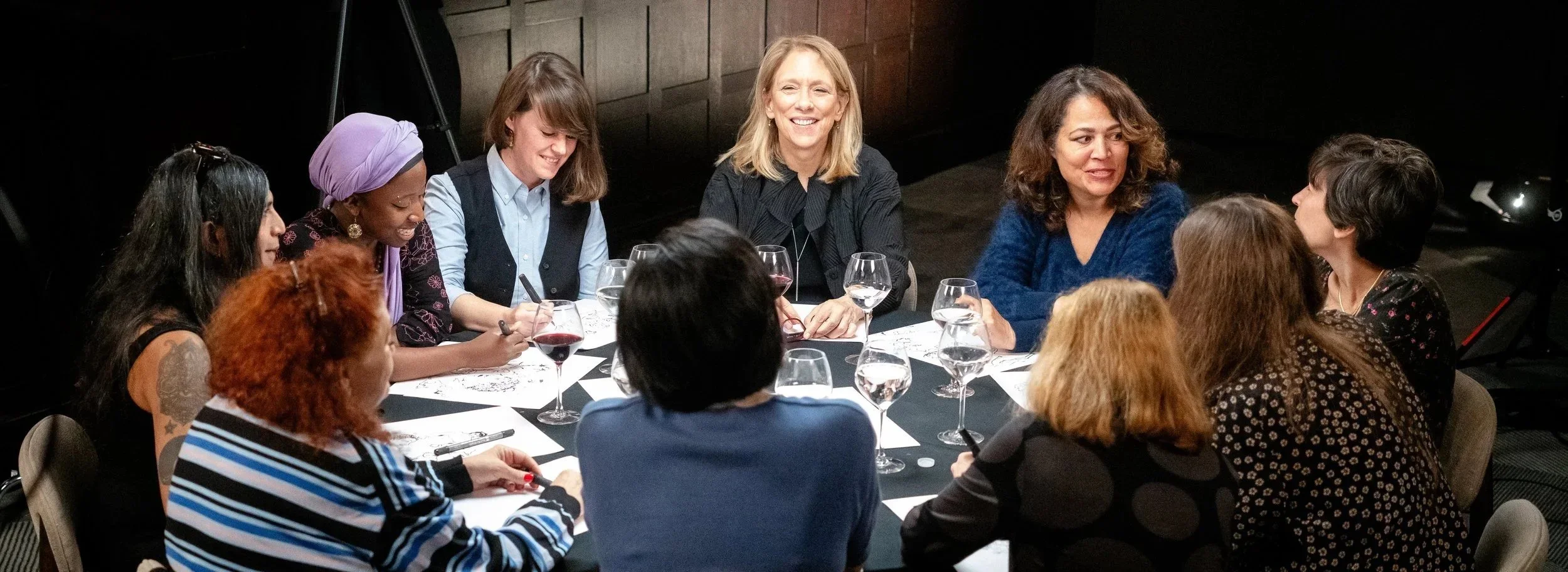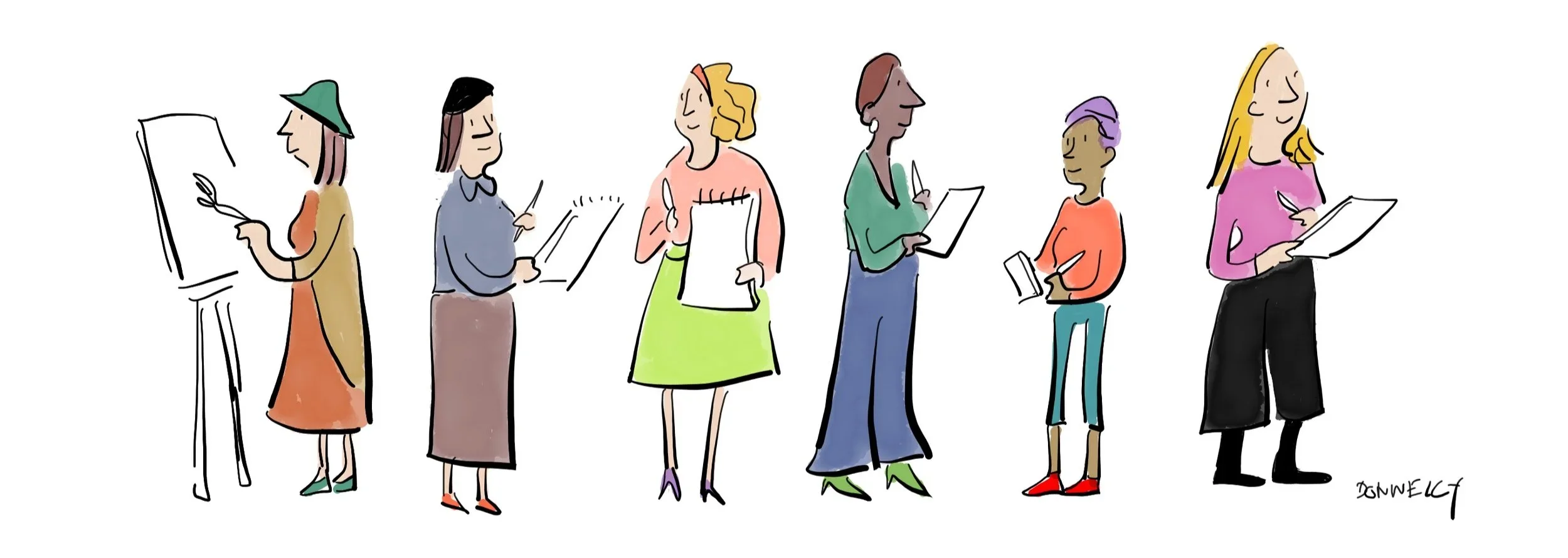Writer and cartoonist, Liza Donnelly has worked for the New Yorker Magazine for over 40 years, and has also written and drawn for the New York Times and Washington Post. Throughout her life and career as a cartoonist, single panel cartoons appealed most to her and fed her desire to discuss culture and politics. “Single panel cartoons are often just silly and about daily life, but they also can be about politics from an indirect way.” Liza’s goal for her political cartoons is to make people smile while also teaching them something new. “Humor has a great way of opening people's eyes. Whether it's stand up, late night TV shows, or cartoons, you can make people laugh, and then they might think, ‘oh, that's different,’ or ‘I hadn't thought of it that way.’”
“Women Laughing, was born out of a desire to create a film that showed women’s voices, women’s creativity, how women think, how women laugh, in this small demographic of New Yorker cartoonists.”
Liza grew up in a tumultuous time in the United States– Watergate, the Women's Rights movement, and the Civil Rights movement were formative for her as a person and as an artist. In the 1970s, Liza knew she wanted to be an editorial cartoonist, and knew of the New Yorker through her parents. The New Yorker political cartoons were a form of cartooning that Liza wanted to use her drawing skills with “to help the world.” Although people didn’t discuss gender in the 1970s the way that we do now, she noticed that the editorial landscape was extremely male dominated. Liza points out that women and non-binary people bring a perspective and experience that’s uniquely theirs to the table. “I really don't believe that women and men have different ways of drawing or different ways of expressing themselves. I think we all are the same in that regard. But what we bring that's different is our point of view that hasn't been heard before.”
Upon reflection, Liza feels as though she didn’t think she had a “strong enough opinion. A lot of the editorial cartoons back then were like that, and they still are that way in many, many ways.” She believes that gender played a role in her own fear of being opinionated, and in many other women’s lives. She states that, “oftentimes women are raised to be people pleasers, and to make nice, and make sure everybody's happy.” American society encouraged women to be passive, especially in the 70s. “I think I thought that opinions were for other people, but I wasn't smart enough. I didn't know enough. I was always so careful to make sure I knew enough before I stated my opinion.” For Liza, it took years of “stepping [her] toes into the opinion pool” to feel comfortable allowing herself to firmly state her opinion and be angry within her cartoons. Now she has a Substack titled Seeing Things, where she posts her cartoons tackling politics, feminism, and current events. “I wish it hadn't taken so long, but I'm lucky to be able to express myself.”
Liza’s debut documentary, Women Laughing, was born out of a desire to create a “film that showed women's voices, women's creativity, how women think, how women laugh, in this small demographic of New Yorker cartoonists.” The documentary interweaves each cartoonist's story with their drawings into an intimate and lovely portrait of how they do what they do, and why they do what they do, why and how women's humor can help people think differently. Women Laughing shines a light on these women’s brilliance, creativity, humor, and the laughs in between.
Women Laughing will have it’s NYC premiere at DOC NYC on November 15th. Tickets are available here.






